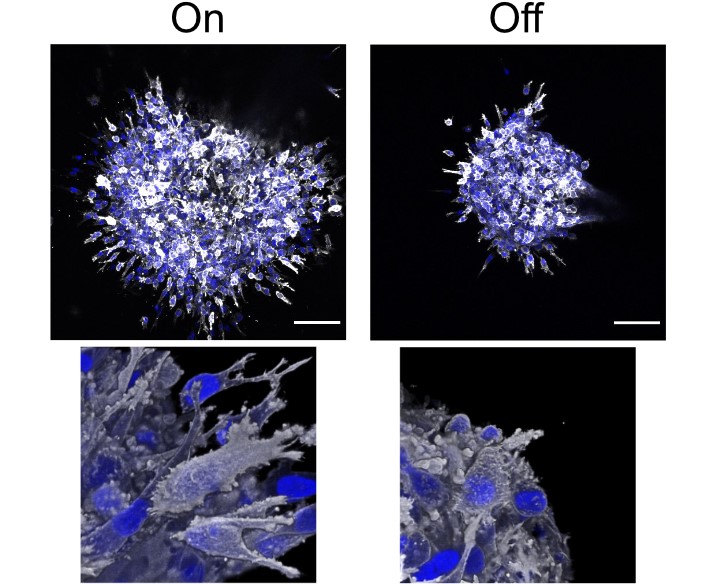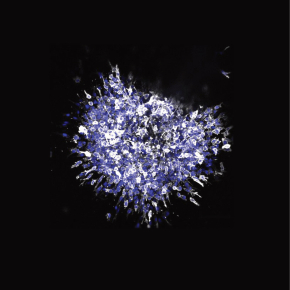
Treatment of aggressive breast cancer: discovery of a new protein involved in the development of metastases
A protein found abundantly in breast cancers that are refractory to conventional treatments is thought to cause the development of metastasis. Targeting it would prevent metastatic spread and therefore increase patients survival. These are the findings of a study conducted by a French-American team and led by a biologist at CNRS1 . The study, the results of which appear on 31st January in Cell Discovery, aims to better understand the mechanisms at play in the development of primary tumours in aggressive breast cancers into metastases2 .
Malignant cells are thought to spread thanks to the SMYD2 protein, which diverts the activity of another protein — BCAR3 — to the cells’ advantage. Known to be partly responsible for the adhesion and migration capacity of metastatic cancer cells, BCAR3 activity is heavily stimulated by SMYD2. In vitro experiments show that the development of these cells and their ability to migrate and invade surrounding tissues requires the presence and activity of SMYD2.
The team of scientists subsequently attempted to inhibit SMYD2 in mice with primary-stage breast cancer. A comparative analysis of the development of a cancer in treated and untreated mice revealed a correlation between SMYD2 inhibition, the blocking of its action on BCAR3 and the absence of metastasis.
These results are a compelling first step towards the development of an early treatment to prevent the development of metastases in breast cancer. Such a preventive treatment would give the medical team more time to identify and implement effective therapy to treat the primary tumour, or to find an alternative for refractory tumours.

Cytoskeleton remodeling induced by SMYD2 methyltransferase drives breast cancer metastasis. Alexandre G. Casanova, Gael S. Roth, Simone Hausmann, Xiaoyin Lu, Ludivine Bischoff, Emilie Froeliger, Lucid Belmudes, Ekaterina Bourova-Flin, Natasha M. Flores, Ana Morales Benitez, Tourkian Chasan, Marcello Caporicci, Jessica Vayr, Sandrine Blanchet, Francesco Ielasi, Sophie Rousseaux, Pierre Hainaut, Or Gozani, Muriel Le Romancer, Yohann Couté, Andres Palencia, Pawel K. Mazur, and Nicolas Reynoird. Cell Discovery, 31st January, 2024.
DOI : https://doi.org/10.1038/s41421-023-00644-x


